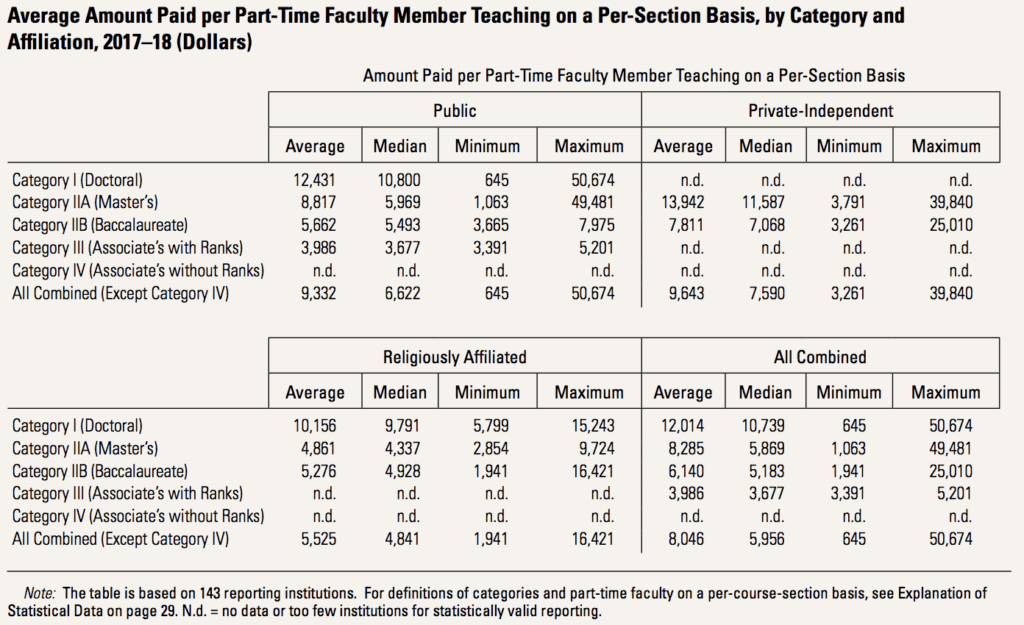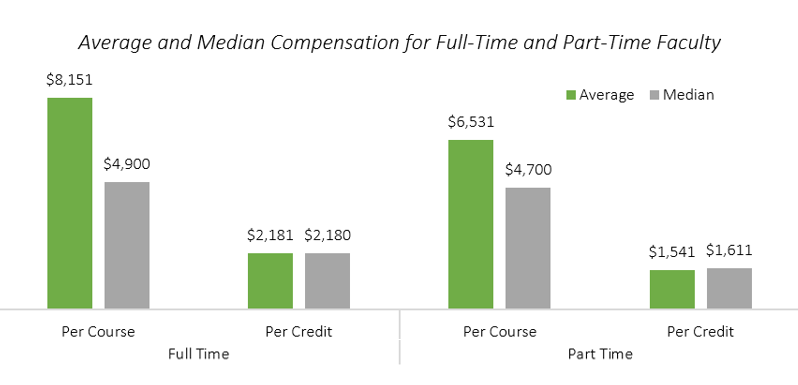Paying Faculty is Both an Art and Science
Reflecting back upon the past two decades of higher education, much has changed. Millennials have fully exited the traditional higher education system with early Millennials quickly becoming managers and leaders of the companies or organizations they work for. Generation Z just saw its first major college graduating class. Both generations saw new ways and tools for learning. During this time, colleges and universities built up their campus infrastructures, but also adopted online learning. For the professional, continuing, and online (PCO) education unit, a shift from classroom-based evening or weekend programs to online degrees, massive open online courses (MOOCs) and noncredit training emerged.
Online learning evolved from a deep reliance on text-heavy and discussion board formats to more video-based or multi-media forms of learning. The emergence of the instructional designer and multimedia technologist became a critical link between the faculty and the distant learner. In the noncredit world, the turnover in content is also creating new demand for qualified instructors and the development of new courses and programs.
As a result, faculty teaching in a PCO setting are much different today than they were ten and twenty years ago. UPCEA’s Center for Research and Strategy has studied existing research on faculty salaries, as well as conducted small studies on this. What we’ve concluded is that, while standards and processes exist within the institution, there is a great deal of variability and often times negotiation of faculty salaries. In a 2017-2018 study by the American Association of University Professors (AAUP), the average per-section pay for a part-time faculty member was $8,046 and the median $5,956. The highest averages and medians were at doctoral institutions at $12,014 and $10,739 respectively, and the lowest at associate degree granting institutions at $3,986 and $3,677.

Source: AAUP, 2017-2018
UPCEA research from 2017 shows that a typical PCO unit has almost fifty faculty teaching online for them. The small sample survey (n=17), showed that, on average, full-time faculty are paid $8,151 per course, while part-time faculty are paid $6,531.

Source: 2017 UPCEA Research and Strategy
A 2016 UPCEA survey of 50 institutions showed that faculty were paid more to teach graduate courses than undergraduate courses, with a median graduate per course pay of $4,450 compared to $3,992 for undergraduate instruction. Noncredit faculty were paid a median of $3,500 per course. This study also showed that only 10% of institutions report paying more than $6,000 for undergraduate instruction compared to 29% of institutions paying more than $6,000 for graduate instruction.
The Chronicle of Higher Education reports disparities in faculty salaries based on gender, field of study and academic rank. Both the 2016 and 2017 UPCEA studies note that PCO faculty salaries are also influenced by field of study/academic area (42% of institutions in 2017 and 47% in 2016) or by the experience of the faculty (46% of institutions in 2017). A smaller percent of institutions (17%) reported some compensation being influenced by the number of students enrolled in the course.
Faculty are also paid to develop online courses, often at a rate lower than teaching the course. On average, the 2017 UPCEA study showed that faculty were paid on average $2,407 to develop a course while the 2016 study showed a median of $3,150. About two-thirds of institutions surveyed said that faculty were also paid to revise courses, often at a rate higher than developing the course. The average paid to faculty to revise a course was $3,403, although the median was just $1,500.
While pay varies, so does the level of support the faculty receives. Eighty-two percent receive IT support, while 73% have the support of an instructional designer. Just 18% had a teaching assistant or grader.
As can be seen from multiple sources, determining faculty pay requires not only an institution’s internal processes and standards, but also other factors, such as support received and market demand for highly specialized content. Support is often the forgotten part of the equation, as high demand content executed poorly defeats the goal of delivering quality education to the masses. Interestingly, the delivery of commodity content could potentially be greatly enhanced through a highly skilled instructional designer and thus could create greater demand. In conclusion, while teaching and learning are changing, so are the faculty and support around a course. Resourcing one may take away from resourcing the other, so care and science should be exercised.
Learn more about UPCEA's expert consultants.
Do you need help with your PCO unit or campus? We can help. Contact UPCEA Research and Consulting for a brief consult. Email [email protected] or call us at 202-659-3130.
Trusted by the nation's top colleges and universities, UPCEA Research and Consulting provides the best value in the industry today. UPCEA's industry experts have years of experience in Online and Professional Continuing education - put them to work for you!
UPCEA Research and Consulting offers a variety of custom research and consulting options through an outcomes-focused pricing model. Find the option(s) that best suit your institution.
Learn more about UPCEA Research & Consulting
The UPCEA Difference
Unmatched Experience: For more than 100 years, UPCEA consultants have exclusively served the needs of online and professional continuing education programs. UPCEA consultants leverage their extensive industry expertise to expedite solutions, anticipate upcoming shifts, and offer distinct best practices, effectively aiding clients in achieving their goals.
Cost Effectiveness: As a nonprofit, member-serving organization, we provide unmatched value, allowing you to maximize limited research and consulting budgets.
Action in Motion: Our cadre of experienced, skilled authorities and expert practitioners propels you forward, translating research and consulting into impactful implementation, a distinctive hallmark of UPCEA. Our team of current and former institutional leaders will support you, turning research and consulting into action.
Mission Alignment: Like you, our mission is to enhance and expand educational opportunities and outcomes for adult and other non-traditional learners. We share your values and work in partnership with you to advance access and excellence in education.
